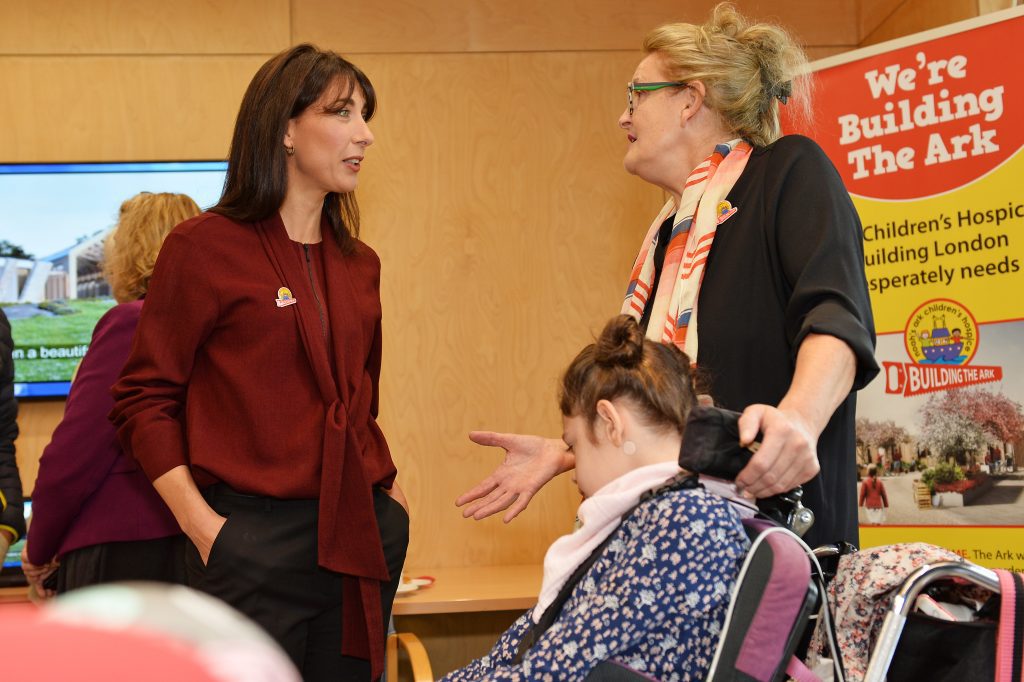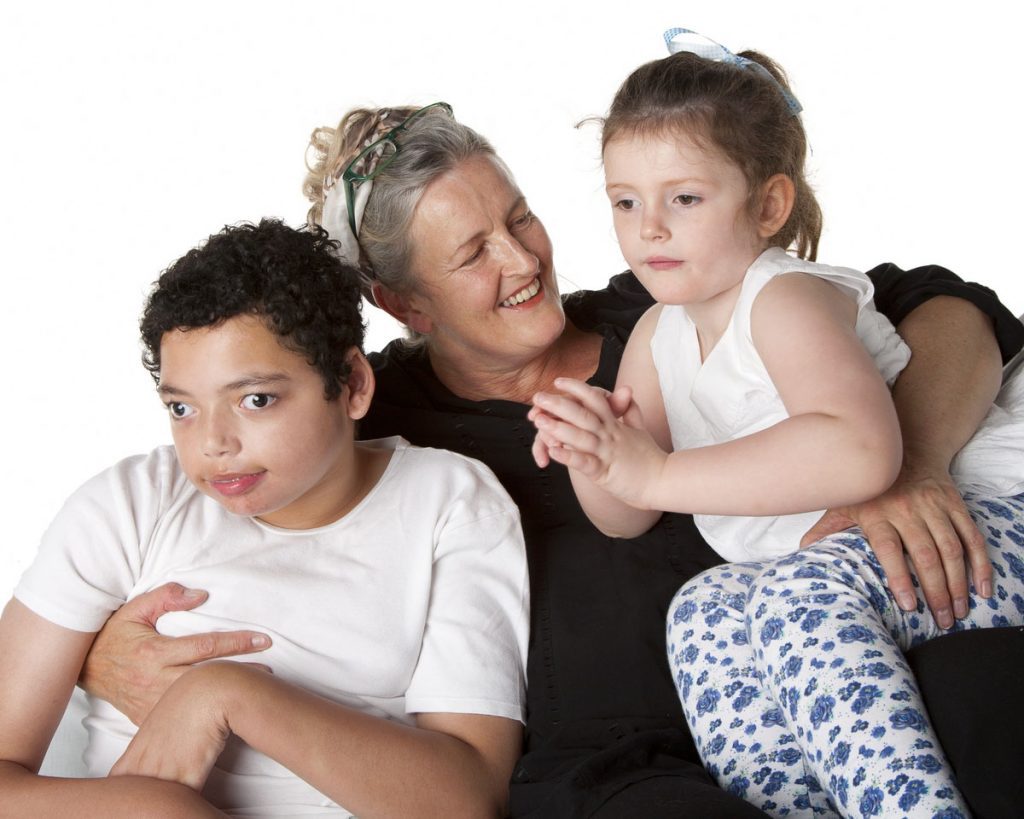Rose has looked after her grandchildren, Ben and Sophie, since they were small. Ben died in 2014 from the same life-limiting genetic condition that affects Sophie.
Aware that her granddaughter’s health is deteriorating, Rose’s dearest wish is for Sophie to have the end-of-life hospice care that wasn’t available to Ben.
“Hopefully, it will be there for Sophie when the time comes. Just to have that option would be a gift that’s immeasurable, really,” she said.
Rose told us about their life together: “Ben came to live with me in 2003, at the age of four, because his mum became ill. Sophie came to me at eight months. Ben and Sophie have a condition called STXBP1, which is a genetic mutation. The symptoms include epilepsy, loss of swallow, loss of mobility and developmental delay. The epilepsy tends to be uncontrolled and changing constantly, which makes it very difficult to deal with on a daily basis.”
Looking after her grandchildren has placed great physical and emotional demands on Rose. As their main carer she has been there for them 24/7, helping with washing, dressing and movement; attending to oxygen, nebulisers and gastronomy tubes and constantly on the alert for seizures, even at night.
“I think isolation is a huge thing when you have children with disabilities because unless disability touches someone’s life they don’t understand, and why would they?” says Rose.
“Sometimes you’re coming to terms with a diagnosis, you’re coming to terms with a condition and you’re mourning the child you thought you were going to have. That’s isolating because there isn’t space in your head for socialising while you’re going through these stages. It’s a very time-consuming thing to cope with.
“For the children as well, you just want them to be as happy as they can be and have as many experiences as they can and as many nice times, especially when you know they are life-limited.”

The family has received support from Noah’s Ark since 2008; the early days of the charity. “Our first experience was a play specialist, who used to come once a week, to bring different sensory toys for the children,” says Rose. “She’d give them an hour to play, and give me an hour as well, which was quite a big help.”
“When you have a child with special needs, it’s so very difficult to hand over the reins. You need to trust and know that the facilities are able to cope with your child’s needs and that the staff are well-trained and that they know your child and all their foibles!”
Since then they’ve also taken advantage of Noah’s Ark’s unique range of Hospice-at-Home services. “We’ve been to summer fairs and winter balls and family days. We’ve even had a lady who came to take away the ironing … and then brought it all back on hangers – she was great! And there’s been that general support; knowing there’s someone at the end of the phone, just asking if there’s anything they can do.”

Ben died at home in December 2014. “Lovely Ben!” says Rose. “His condition became progressively worse; he had a very compromised respiratory system, so was prone to chest infections and constantly on antibiotics. He had a very severe scoliosis so was in a lot of pain. Eventually, all his systems were breaking down. He fought very hard for a very long time but sadly we lost him.”
For Rose, it was so important that Ben shouldn’t die in hospital, “with tubes all over the place in an environment that he would have hated”. Rose is conscious that Sophie has the same condition as Ben. “I can see the same fundamental changes in Sophie. We’re following the same path and it’s inevitable really that that path ends where it ended for Ben.
“Noah’s Ark had been so supportive throughout Ben’s life, and Sophie’s life. But to have had a physical hospice, to have had that option at the end would have been a big thing, a big help.
“It was something that would have been wonderful while Ben was alive. It’s too late for that now, but it would be an amazing thing if it was ready in time for Sophie.”